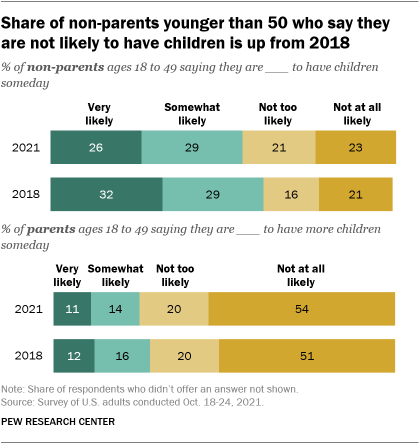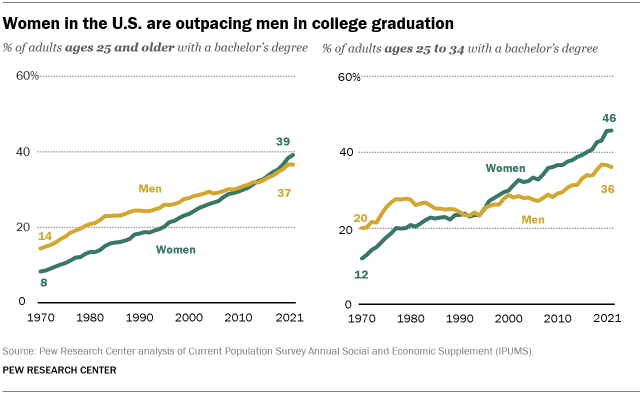
In every issue of Ms., we track research on our progress in the fight for equality, catalogue can’t-miss quotes from feminist voices and keep tabs on the feminist movement’s many milestones. We’re Keeping Score online, too—in this biweekly roundup.

Lest We Forget
“Generations of Americans have persevered through poll taxes, literacy tests, and laws designed to strip away their power — and they’ve done it by organizing, by protesting, and most importantly, by overcoming the barriers in front of them in order to vote. And now, we’ve got to do the same. … We must give Congress no choice but to act decisively to protect the right to vote and make the ballot box more accessible for everyone.”
—Former First Lady Michelle Obama in a letter titled “Fight For Our Vote” on the importance of voting in the upcoming 2022 midterm elections.
“The United States is on the verge of a major achievement, one that almost no one seems to have noticed.
If — and right now this remains a big ‘if’ — some version of President Biden’s Build Back Better plan gets back on track, we might finally join the ranks of every other rich nation on Earth and treat access to health care as a fundamental right. …
The United States, despite its exceptional wealth, has remained an outlier. It’s embarrassing.”
—Washington Post columnist Catherine Rampell on the potential passage of President Joe Biden’s Build Back Better plan, which would close the Medicaid gap in the 12 states that did not expand coverage among other health care reforms.
“A vote for this bill is effectively a vote to ban all abortions because many people don’t even know they’re pregnant at the point when this bill’s extreme restriction would take effect. The decision about whether and when to become a parent is one of the most important life decisions we make and Nebraskans should be able to make their own decisions about what is best for their families. It’s not our state senators’ place to judge Nebraskans or take away their freedom to make deeply personal decisions. The Nebraska Legislature must stop the bans and start respecting Nebraskans’ rights.”
—Scout Richters, legal and policy counsel at the ACLU of Nebraska, on what could become one of the most restrictive abortion bans in the U.S..
“Abortion is essential health care that is safe and legal in Nebraska. However, medically unnecessary barriers are making abortion harder to access and are pushing care out of reach.”
—State Senator Megan Hunt of Omaha on her proposal to repeal the state’s ban on telehealth abortion services, as well as legislation which requires additional coverage for those with private insurance to obtain abortion care.
“Our great nation now teeters on the brink of a widening abyss. Without immediate action, we are at genuine risk of civil conflict and losing our precious democracy. Americans must set aside differences and work together before it is too late.”
—Former President Jimmy Carter (D) in a recent New York Times op-ed titled “I Fear for Our Democracy”
“Bans on abortion disproportionately impact people who already face discriminatory obstacles when accessing health care—particularly Black, Indigenous, and people of color and those living on low incomes. Yet, state legislatures chose to push restrictive abortion measures that increase barriers to care despite the urgent need to respond to the continuing global coronavirus pandemic and ongoing health disparities experienced by Black communities and other communities of color.”
—The Center for Reproductive Rights’s 2021 Legislative Wrap Up on abortion restrictions passed over the past year.
Milestones
+ The “Fight for 15” movement—which advocates for an increased minimum wage of $15—saw several major victories in 2022. Twenty-five states and 56 jurisdictions raised their minimum wages, with 22 of the changes being implemented as of Jan. 1.
+ Legislation approved by the D.C. Council on Tuesday, Jan. 4, will ensure that students in the District will be provided free menstrual products in public and private school restrooms.
+ In November, New York City residents elected its first women-majority city council to take office this month, including council member Shahana Hanif, the first woman to represent her Brooklyn district, and the first Muslim woman on the council.
“I think it’s significant that the first Muslim woman coming in is cognizant about the ways in which surveillance continues to be a part of our daily life, part of our absolute daily life in every single institution,” Hanif said. “So I will continue to talk about that, and how critical it is to end all warrantless surveillance as a top priority.”
+ Three men were convicted of murdering Ahmaud Arbery in November 2021, and on Friday, Jan. 7, a Georgia judge sentenced two of them to life in prison without the possibility of parole, while the third was sentenced to life with the possibility of parole.
+ On Tuesday, Dec. 28, Jeopardy contestant Amy Schneider won her 21st game, reaching more consecutive wins than any woman in history and beating Julia Collin’s 2014 record. On Friday, Jan.7, she became the first woman to win more than $1 million on the show. Earlier in 2021, she also became the first transgender contestant to participate in the Tournament of Champions.
+ After President Biden implemented a COVID-19 vaccine mandate for members of the National Guard, Texas Governor Greg Abbott (R) sued the Biden administration, claiming he has authority to exempt all Texas guard members.
+ Oriini Kaipara, a Māori journalist in New Zealand, made history as the first person to host a primetime national news program with traditional facial markings while covering for Newshub’s permanent anchors.
Oriini Kaipara made history as the first person with a traditional lower chin tattoo to anchor primetime news. “It’s breaking new ground for us as Māori, but also for people of colour. Whether you’ve got a moko kauae or not.” Read more here: https://t.co/ji2s6obL7w pic.twitter.com/dAfuBaeFL2
— The Female Lead (@the_female_lead) January 5, 2022
+ To refrain from depicting men’s sports as the default, the NCAA’s 2021 gender equity review prompted a rebranding of the college basketball Final Four as the Men’s Final Four, just as the women’s teams’ championship weekend is called the Women’s Final Four.
+ The American Girl brand announced that its 2022 “Girl of the Year,” Corinne Tan, is a Chinese American skier whose story involves finding the courage to speak up against xenophobia. American Girl partnered with student-led nonprofit AAPI Youth Rising to raise awareness of an increase in anti-AAPI hate since the beginning of the COVID-19 pandemic.
+ Sokhary Chau, a Cambodian refugee and former city councilor of Lowell, Mass., was sworn in as the first Cambodian American mayor in the U.S. on Monday, Jan. 3.
+ On Wednesday, Dec. 29, U.S. Secretary of State Antony Blinken appointed Rina Amiri as the special envoy for Afghan women, girls and human rights and Stephanie Foster as the new senior advisor for women and girls within the State Department’s Coordinator for Afghan Relocation Efforts (CARE) team. They will work closely to ensure the U.S. encourages peace and security for Afghan women.
+ The National Center for Transgender Equality announced Monday, Jan. 3 that it will resume data collection for the U.S. Transgender Survey after the delay of its 2020 release.
How We’re Doing
+ Though a decrease from years prior, 45 reporters and media staff were killed on the job in 2021. Casualties were especially high in war-torn Afghanistan where journalists covered the tumultuous withdrawal of U.S. troops, according to an annual report by the International Federation of Journalists.
+ The gender gap in college enrollment and graduation is continuing to widen, with 46 percent of American women ages 25 to 34 possessing a bachelor’s degree, as compared to only 36 percent of their male counterparts.
+ Only 22 percent of pregnant Americans received COVID vaccines during their pregnancy, and just 18 percent were vaccinated beforehand. Three in five pregnant people in the U.S. have no protection whatsoever amidst one of the biggest COVID-19 surges to hit the U.S.
+ U.S. fertility rates had already hit a record low in 2018 before the COVID-19 pandemic began, and now even fewer U.S. adults—just 55 percent of non-parents—expect to have children in the future. The percentage expecting to have more children goes down to 25 amongst current parents younger than 50 years old.

+ With COVID-19 death tolls continuing to climb, 167,000 children—or one in every 450 minors in the U.S.—have lost a caregiver to the disease, presenting yet another obstacle to academic progress.
+ As labor shortages intensified, more workers left their jobs in November 2021 than ever before, with 4.5 million quitting or shifting to more flexible and high-paying positions.
“This is the tightest labor market ever,” said economist Julia Pollak. “These are not quits from the labor force, but quits from lower paying jobs to higher paying jobs, from less prestigious jobs to better, more prestigious jobs, from less flexible jobs to more flexible jobs.”






